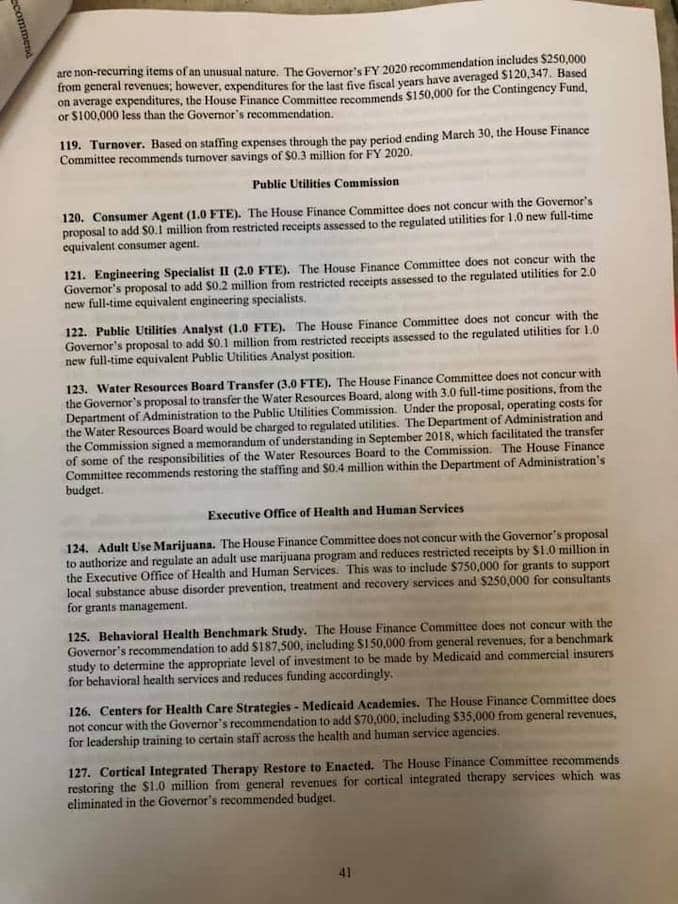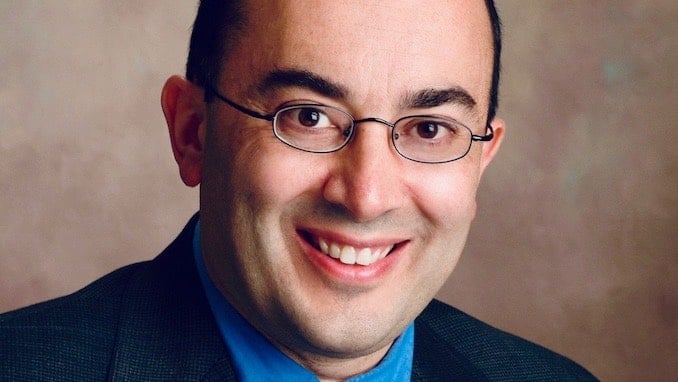Who is Dr Victor Pedro and why is he receiving $1M in the 2020 RI State Budget?
Update: 9:20AM: I caught Dr Victor Pedro outside his office this morning: Dr Victor Pedro has a practice on Park Avenue in Cranston, and seems to be the world’s only practitioner of an alternative form of medicine that he invented, called Cortical Integrative Therapy (CIT). In the recently unveiled 2020 budget, there is the following line on page 41: 127.
June 19, 2019, 6:23 am
By Steve Ahlquist
Update: 9:20AM:
I caught Dr Victor Pedro outside his office this morning:
Dr Victor Pedro has a practice on Park Avenue in Cranston, and seems to be the world’s only practitioner of an alternative form of medicine that he invented, called Cortical Integrative Therapy (CIT). In the recently unveiled 2020 budget, there is the following line on page 41:
127. Cortical Integrated Therapy Restore to Enacted. The House Finance Committee recommends restoring the $1.0 million from general revenues for cortical integrated therapy services which was eliminated in the Governor’s recommended budget.


So what is Cortical Integrated Therapy and who is Dr Victor Pedro?
Pedro graduated with a BS from the University of Vermont in 1981, moved on to Boston University to study dentistry, but ultimately became a chiropractor, graduating from the New York Chiropractic College in 1983. Around twenty years ago Pedro seems to have invented CIT, a new form of alternative medicine that seems to be available only at his Park Avenue practice. You can access his curriculum vitae here.
Pedro has made many campaign contributions, most notably to Speaker of the House Nicholas Mattiello (Democrat, District 15, Cranston), to the tune of around $2000 over the last several years. The Speaker’s law office is a two minute drive up Park Avenue from Pedro’s practice. The Rhode Island Chiropractic PAC Fund, to which Pedro is also a contributor, has also made around $2000 in donations to Mattiello’s campaign.
Pedro has benefited from the largess of the legislature in the past. A pilot program into CIT “was funded by a grant of $150,000 received from the Rhode Island Legislature for their 2004-2005 budgetary year. All of the funds received, less an administrative fee, were used to purchase capital equipment and materials that provided free treatment to ten children diagnosed with ADD/HD.” According to Pedro’s website, “We are grateful for this grant and believe that the results of this pilot program demonstrate that the confidence, commitment, and generosity of the Rhode Island Legislature were justified.”
In 2017 the United States Department of Health and Human Services turned down Pedro’s request to allow CIT to be covered under Medicaid. In their letter of denial, the Department wrote that:
“As proposed, the CIT treatment is broadly described, with very few parameters for cost or quality control for the specific array of services billed, the intensity of the services, the length of therapy, or clinical indications for each service. The state has not provided scientific evidence verifying the efficacy of CIT, nor any indication that CIT was subject to such evaluation.” [emphasis added]
The Centers for Medicare and Medicaid (CMS) does not pay out for “clinical interventions that have not demonstrated clinical safety and efficacy through standard clinical evaluation processes, and ideally through a rigorous randomized controlled trial,” continued Tigue. “These trials and similar demonstrations could more appropriately be covered through grants available from the National Institute of Health or other private and public funders of clinical research.” [emphasis added]
Melissa Jenkins PhD, a Clinical Neuropsychologist and Clinical Assistant Professor at Alpert Medical School at Brown University, was equally pessimistic about the scientific validity of CIT.
“This is not an evidence based treatment for brain injury or anything else. There are no peer reviewed studies whatsoever,” said Jenkins. “CMS previously reviewed a request to fund it and declined due to lack of adequate description or any data on effectiveness. The inventor has published a few abstracts associated with talks at meetings (one at a forum on “controversial topics.”) As far as I can see, he’s the only practitioner of this technique, so I am wondering exactly where this million dollars is going to end up. I find no detailed description of the technique published anywhere. It’s not taught to medical students, despite apparently being around (and legislatively funded) since 2004.”
A tight budget?

The budget this year is very tight, said Speaker Mattiello at Tuesday’s 2020 Budget briefing.
“Not a lot of non-state agencies are getting funded today,” said Speaker Mattiello, discussing why the Nonviolence Institute lost its grant this year. “The community service grants were cut way back, and with limited resources and out year deficits you have to reassess so we’ll take a look but right now that $200,000 probably does not exist.”
Asked about an additional $200,000 for the State Department of Veterans Affairs, Mattiello said, “Great idea, wonderful need, just like the Nonviolence Institute, wonderful need, want to do that for the veterans, I don’t know that we have $200,000 right now.”
Other needs that the $1M to Dr Pedro might cover include:
- 125 units permanent supportive housing initiative $500K
- Child Care Assistance Program (CCAP) expansion $200K
- Lead prevention $200K
- School meals $55K
This begs the question: How is the public’s money better spent? On unproven medical techniques invented by a Park Avenue chiropractor or on proven, effective programs that actually work in our communities?
This report only scratches the surface, and reflects the efforts of a group on Facebook doing research and trading links. (Thank you to everyone who assisted me in this research.) Given that the House vote on the budget begins Friday of this week, it seems vitally important to get this information out now, so that the public can evaluate this expenditure.
This report will be updated, or an additional piece written, when House Director of Communications Larry Berman gets back to me about this expenditure or other information becomes available.
[Correction: An earlier version of this piece incorrectly identified the author of the United States Department of Health and Human Services letter.]UpriseRI is entirely supported by donations and advertising. Every little bit helps:
Become a Patron!







